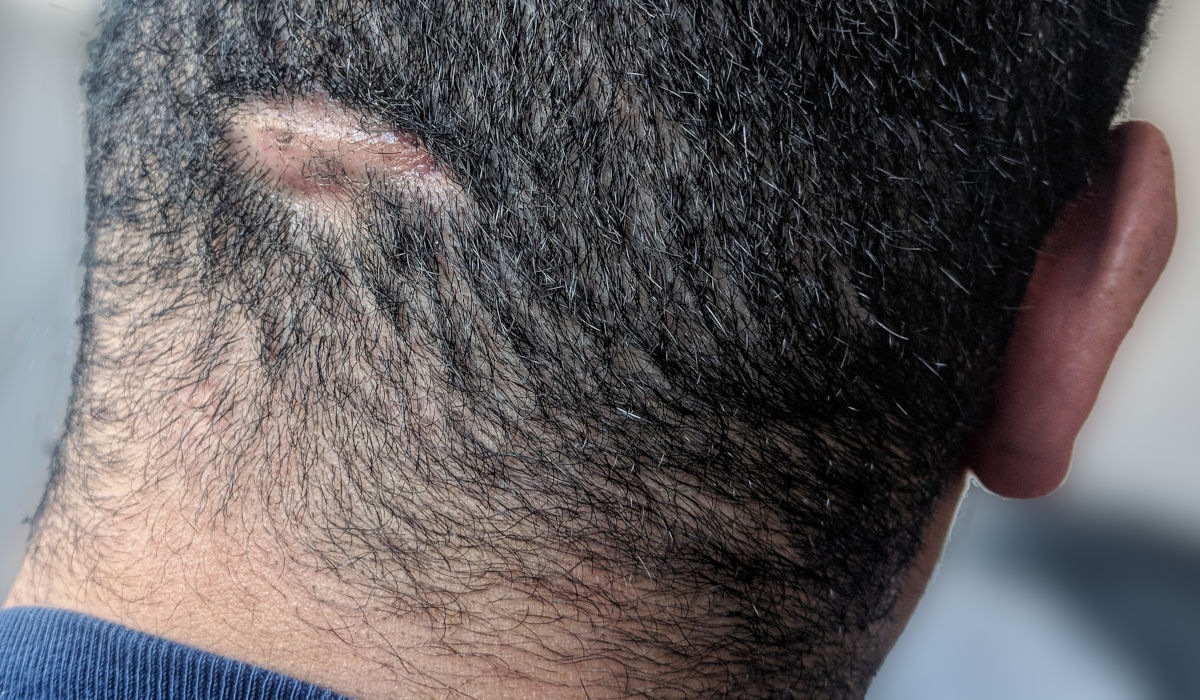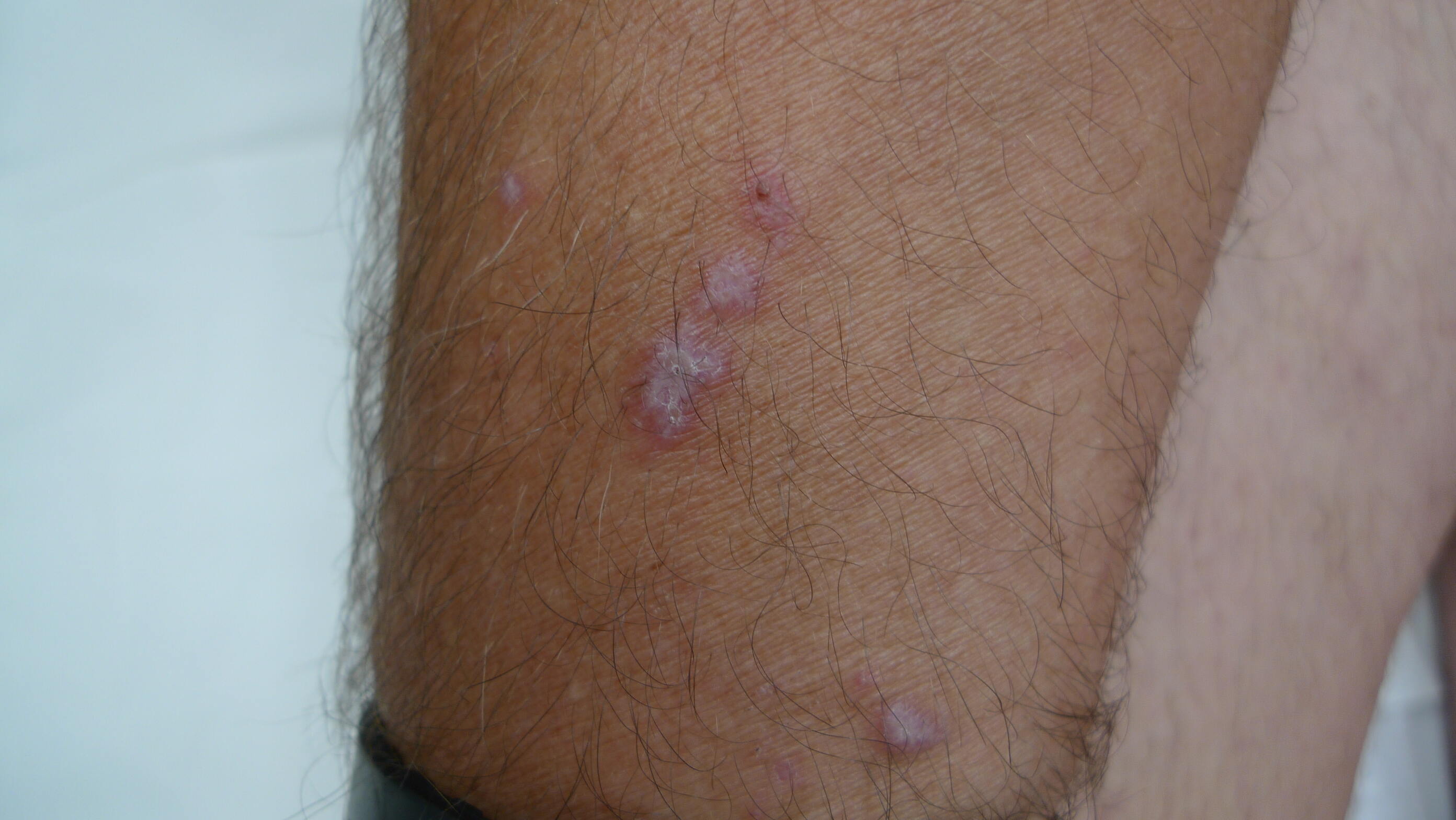
Dissecting Cellulitis of the Scalp is a rare, chronic skin condition that primarily affects men. It involves painful nodules and abscesses on the scalp, which can lead to scarring and hair loss. The exact cause remains unknown, but it’s believed to be linked to inflammation of hair follicles. Symptoms often include tender lumps, pus-filled lesions, and sometimes fever. Treatments range from antibiotics to surgical options, depending on severity. Understanding this condition can help manage symptoms and improve quality of life. Here are 50 facts to give you a comprehensive look at this challenging condition.
Key Takeaways:
- Dissecting Cellulitis of the Scalp is a rare condition that causes painful nodules and scarring on the scalp. It primarily affects young adult males and can be managed with antibiotics, corticosteroids, and lifestyle changes.
- Living with Dissecting Cellulitis of the Scalp involves wearing loose-fitting hats, avoiding harsh hair products, and seeking emotional support. Ongoing research aims to better understand the condition and develop more effective treatments.
What is Dissecting Cellulitis of the Scalp?
Dissecting Cellulitis of the Scalp (DCS) is a rare, chronic inflammatory condition affecting hair follicles. It leads to painful nodules, abscesses, and scarring. Understanding this condition can help manage symptoms and improve quality of life.
- DCS primarily affects young adult males, often between ages 18 and 40.
- The condition is more common in African American men.
- It is also known as perifolliculitis capitis abscedens et suffodiens.
- DCS is part of the follicular occlusion triad, along with acne conglobata and hidradenitis suppurativa.
- The exact cause of DCS remains unknown.
- Genetic factors may play a role in its development.
- Hormonal changes can exacerbate the condition.
- Bacterial infections are often present in affected areas.
- The condition is not contagious.
- Stress can worsen symptoms.
Symptoms and Diagnosis
Recognizing the symptoms of DCS is crucial for early diagnosis and treatment. Here are some common signs and diagnostic methods.
- Painful nodules on the scalp are a primary symptom.
- These nodules can merge to form larger abscesses.
- Pus-filled lesions may develop and drain spontaneously.
- Scarring and hair loss often occur in affected areas.
- The condition can cause itching and discomfort.
- Diagnosis typically involves a clinical examination.
- A biopsy may be performed to confirm the diagnosis.
- Imaging studies, like MRI or CT scans, can help assess the extent of the disease.
- Blood tests may be conducted to rule out other conditions.
- Dermatologists are usually the specialists who diagnose DCS.
Treatment Options
While there is no cure for DCS, various treatments can help manage symptoms and prevent complications.
- Antibiotics are commonly prescribed to treat bacterial infections.
- Corticosteroids can reduce inflammation and pain.
- Isotretinoin, a powerful acne medication, may be effective.
- Surgical drainage of abscesses can provide relief.
- Laser therapy is an option for some patients.
- Immunosuppressive drugs may be used in severe cases.
- Topical treatments, like antiseptic shampoos, can help.
- Regular follow-up with a dermatologist is essential.
- Lifestyle changes, such as stress management, can improve symptoms.
- Maintaining good scalp hygiene is crucial.
Living with Dissecting Cellulitis of the Scalp
Managing DCS involves more than just medical treatments. Here are some tips for living with the condition.
- Wearing loose-fitting hats can reduce irritation.
- Avoiding harsh hair products can prevent flare-ups.
- A balanced diet may support overall skin health.
- Regular exercise can help manage stress.
- Joining a support group can provide emotional support.
- Educating family and friends about the condition can foster understanding.
- Keeping a symptom diary can help track triggers.
- Seeking mental health support is important for coping.
- Exploring alternative therapies, like acupuncture, may offer relief.
- Staying informed about new treatments and research is beneficial.
Research and Future Directions
Ongoing research aims to better understand DCS and develop more effective treatments. Here are some recent findings and future directions.
- Genetic studies are exploring potential hereditary links.
- New antibiotics are being tested for resistant infections.
- Advances in laser technology may offer improved outcomes.
- Research on the microbiome of the scalp is underway.
- Studies on the role of diet and nutrition are being conducted.
- Clinical trials for new medications are ongoing.
- Patient registries are being established to track long-term outcomes.
- Collaboration between dermatologists and researchers is increasing.
- Awareness campaigns aim to educate the public about DCS.
- Future treatments may focus on personalized medicine approaches.
Key Points to Remember
Dissecting Cellulitis of the Scalp (DCS) is a rare, chronic skin condition that primarily affects men. It causes painful nodules, abscesses, and scarring on the scalp. Early diagnosis and treatment are crucial to managing symptoms and preventing complications. Treatment options include antibiotics, corticosteroids, and sometimes surgery. Lifestyle changes, like maintaining good scalp hygiene and avoiding trauma to the scalp, can also help manage the condition.
Understanding DCS can make a big difference in the lives of those affected. If you or someone you know shows symptoms, seek medical advice promptly. Knowledge and proactive care are your best tools in dealing with this condition. Stay informed, stay proactive, and take control of your health.
Frequently Asked Questions
Was this page helpful?
Our commitment to delivering trustworthy and engaging content is at the heart of what we do. Each fact on our site is contributed by real users like you, bringing a wealth of diverse insights and information. To ensure the highest standards of accuracy and reliability, our dedicated editors meticulously review each submission. This process guarantees that the facts we share are not only fascinating but also credible. Trust in our commitment to quality and authenticity as you explore and learn with us.


